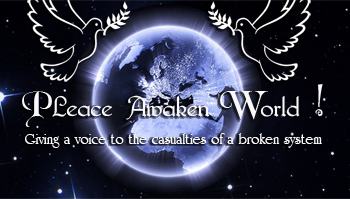|
The Declaration Of Salzburg - The World Uranium Hearing

Having met in Salzburg, Austria, from 13 September to 18 September 1992;
Having heard testimony concerning the environmental, cultural, spiritual, physiological, and economic impact of the use of radioactive substances from all regions of the world;
Convinced of the inherently destructive nature of all phases of the nuclear chain and that nuclear contamination is a threat to all peoples and environments irrespective of political boundaries;
Acutely aware that indigenous peoples have suffered particularly devastating consequences from the extraction and utilization of nuclear substances;
Reaffirming that the survival of indigenous peoples requires respect for their rights of self-determination and to territorial and environmental integrity;
Observing that the spiritual and cultural values of indigenous peoples in their relationship with the natural world offer a perspective capable of transforming prevailing destructive materialistic attitudes and practices;
Recalling the disastrous impact of nuclear weapons testing on indigenous and other land-based peoples in such places as Nevada, Bikini and Eniwetok, Tahiti, Maralinga, and Central Asia;
Deeply moved by the horror of Hiroshima and Nagasaki which marked the opening of the nuclear era;
Alarmed by the experience of Chernobyl and Three-Mile Island;
Convinced that there is no completely safe technology for the containment of radioactive substances;
Dismayed by distorted economic values and priorities, including inappropriate consumption patterns, which threaten a sustainable future;
Apprehensive of the fate of future generations confronted with the intractable consequences of nuclear development;
Determined to end the danger posed by the entire nuclear chain and to ensure an enduring harmonious relationship with the natural world;
Solemnly declares:
I. GENERAL PRINCIPLES
- The natural world, in its richness and complexity, is the foundation of all life.All peoples and individuals have the fundamental right to a safe and healthy environment and the corresponding duty to maintain the integrity of the natural world.
- Each generation bears the obligation of effective stewardship for the benefit of future generations of all living beings.
II. THE PROCESS OF NUCLEAR DEVELOPMENT
Exploitation, Mining and Processing
- The mining and processing of uranium and other radioactive minerals result in the contamination and degradation of large ecosystems.
- Radioactivity and chemical pollutants contained in tailings are spread by the flow of ground and surface waters and by wind currents.
- Inhabitants of affected areas risk immediate and lasting health and genetic consequences from exposure to radioactive substances. Miners are exposed to particularly intensified levels of radiation.
Military Uses
- Over time, nuclear weapons testing has produced atmospheric fallout, contamination of land and sea areas, forced removal of peoples, cultural disintegration, and a range of adverse health consequences, in particular, cancer and threats to genetic inheritance.
- The development of thermonuclear weapons involves the production of large quantities of fission products and plutonium, the most toxic substance known; plutonium persists in the environment for up to hundreds of thousands of years.
Nuclear Power Generation
- Nuclear power facilities, whether civilian or military, produce emissions of radiation and inevitably pose serious and unacceptable risks, including transportation spills, theft of radioactive materials, accidents that spread contamination over vast regions, and the catastrophic effects of a reactor core meltdown.
- No nuclear power plant has ever been safely and completely decommissioned. The ultimate environmental and economic costs of decommissioning remain incalculable.
Nuclear Waste
- No safe method for the disposal of medium and high-level nuclear wastes has been devised. Solutions offered can only provide for storage or dumping, which carry an ever-present risk of lethal contamination. The problem is simply thrust onto future generations.
- The territories of indigenous peoples, impoverished developing countries, and the global commons are frequently targeted for storage or dumping of waste, thus compounding international injustice.
III. INDIGENOUS PEOPLES
- Vast quantities of the world's uranium resources are located and extracted in the territories of indigenous peoples; these territories are often exploited for weapons testing and the storage or dumping of nuclear substances. In violation of their right to self-determination, indigenous peoples have been victimized by dispossession and forced removals, direct contamination, and the desecration of sacred sites.
- The dispossession of peoples and the destruction of the natural ecology that result from the nuclear chain imperil the social cohesion and cultural, material, and spiritual relationship with the natural world upon which indigenous survival depends.
- In order to defend themselves against the physical and cultural genocide that results from nuclear development, indigenous peoples must be able to freely exercise their right to determine and control, without external interference, all matters relating to their societies and territories.
IV. ECONOMIC POLICY
- The monetary price of nuclear energy does not reflect the cost of damage to the biosphere and the profound risks to present and future generations.
- Governments, communities, organizations, and individuals have a duty to ensure that energy is produced and used in a clean, safe, and efficient manner; the global ecology cannot support inappropriate energy consumption patterns.
- The view that unlimited economic growth can be sustained on a habitable planet is fallacious and constitutes a significant threat to future generations.
- Current international policies perpetuate unjust economic disparities which cause developing countries to adopt destructive environmental practices such as uranium mining, nuclear power generation, and the provision of dumping sites for radioactive waste. Sharing safe and efficient energy technologies is essential for equitable and environmentally sound economies in those countries.
- The Precautionary Principle, as recognized by the international community, requires that the safety of potentially dangerous activities must be conclusively established prior to taking any measures towards their implementation. In the case of the nuclear chain, any reasonable application of the Precautionary Principle would require that uranium and other radioactive minerals remain undisturbed in their natural location.
V. RECOMMENDATIONS
The WORLD URANIUM HEARING calls upon governments and, within their respective spheres of responsibility and competence, transnational and other corporations, organizations, communities and individuals
- To recognize and respect the inherent right to self-determination of indigenous peoples, including their right to determine and control, without external interference, the nuclear process as it affects their societies and territories;
- To provide reparations for peoples, communities, and individuals victimized by the mining of radioactive minerals, the use of nuclear weapons, or the storage or dumping of nuclear waste. To make every conceivable effort to alleviate risks and damage caused by past and existing uses of radioactive materials;
- To ensure that liability for social and environmental damage resulting from the nuclear chain is jointly born by those controlling all its phases;
- The lands of indigenous and other land-based peoples, contaminated by nuclear development, must immediately be rehabilitated to as near as practicable to their precontaminate state;
- To fundamentally alter existing economic policies to ensure ecological sustainability; energy development must shift to the use of safe and renewable resources;
- To provide assistance, including financial resources where necessary, for the development of alternative energy programs in countries which utilize nuclear power;
- To ensure that any economic analyses of the nuclear chain fully account for the entire ecological and social impact of radioactivity;
- To provide peoples, communities, and individuals with complete information about the dangers of radioactive substances in all phases of the nuclear chain;
- To support and promote community activities aimed at ending the use of radioactive substances;
- To promote international and national standards, policies, and practices designed to ensure that:
a) radioactive minerals are no longer exploited; and
b) existing radioactive products of the nuclear chain are dealt with according to the safest available technology irrespective of monetary cost;
- To immediately cease production and testing of nuclear weapons; the process of global nuclear disarmament must continue to completion.
URANIUM AND OTHER RADIOACTIVE MINERALS
MUST REMAIN IN THEIR NATURAL ENVIRONMENT !
[This version of the Declaration of Salzburg is a draft. Following the request of the indigenous witnesses, the preliminary version was taken home by all participants of The World Uranium Hearing, to be discussed in their communities and circles, and to make changes if necessary. In summer 1993, in Salzburg, Austria, the Declaration will be presented to the public as well as distributed to the governments of the world and the various institutions of the United Nations.]
|
|









